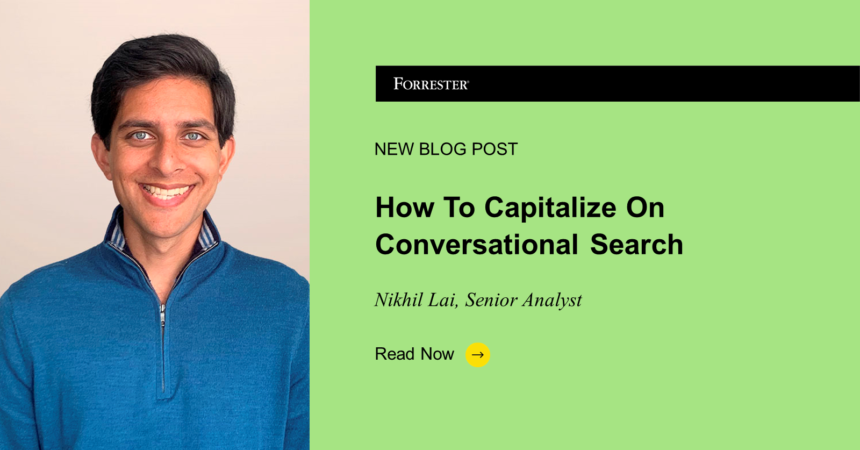New year, new search! In 2024, conversational search will grow because of generative AI’s integration into search engine results pages (SERPs). This growth will be most pronounced on Google and, to lesser extents, on Bing, Amazon, and TikTok.
Rather than getting instant answers to ad hoc questions, consumers will have complex and engaging conversations with SERPs full of follow-up questions and AI-generated answers. As a result, clicks will decline, necessitating the monetization of impressions. SERPs will become increasingly visual, exemplified by new filters like Google’s Perspectives. And, rather than keywords, natural language will be the essence of search. These changes will turn search from a channel that only harvested demand into a full-funnel one that generates demand, too.
For publishers, the rise of conversational search requires revenue diversification. It’s no longer tenable to rely mostly on Google for traffic, as publishers did when Google served link-heavy results that facilitated clicks through. According to a task force at the Atlantic, AI-integrated SERPs fully satisfy users’ queries 75% of the time, obviating clicks and causing publishers to lose traffic they would have otherwise received. Publishers’ predicament extends to Microsoft, who the New York Times recently sued for copyright infringement.
For marketers, the rise of conversational search means:
- New KPIs to measure performance. Today’s indicators don’t work on SERPs that mix paid and organic information in AI-generated summaries. As buyers’ journeys increasingly begin and end with Bard or ChatGPT, indicators like click-through rate, ranking, and average position lose meaning. KPIs that measure brands’ saturation on AI-integrated SERPs and impressions in AI-powered conversations will rise alongside indicators of customer experience.
- Synthesis of SEM and SEO. AI-integrated SERPs approximate paid and organic content, so brands that optimize the two separately will limit their visibility in search results. Furthermore, search engines’ new AI-powered campaign creation tools automatically generate search ads based on brands’ organic content, so SEO directly affects ads’ quality scores. Now’s the time for holistic search marketing.
- More compelling content. As conversational search rises, the quality of content that marketers put into AI engines is their primary advantage. Content quality depends on customer understanding, which demands mining zero- and first-party data for voice of customer to generate increasingly credible, authoritative content. Customers’ voices can get lost, however, in terabytes of unstructured data, so search marketers must develop data engineering skills.
The growth of conversational search is as unsettling as it is constructive. It catalyzes reconsideration of buyers’ journeys, the funnel’s shape, Google’s roadmap, search marketing’s role in the media mix, and websites’ utility.
We’re here to help you capitalize on these changes. Our new report – How To Talk To Your AI-Integrated Search Engine – describes search engines’ AI-powered transformation and clarifies how to win AI-integrated SERPs. If you’re interested in learning more, feel free to schedule time.








